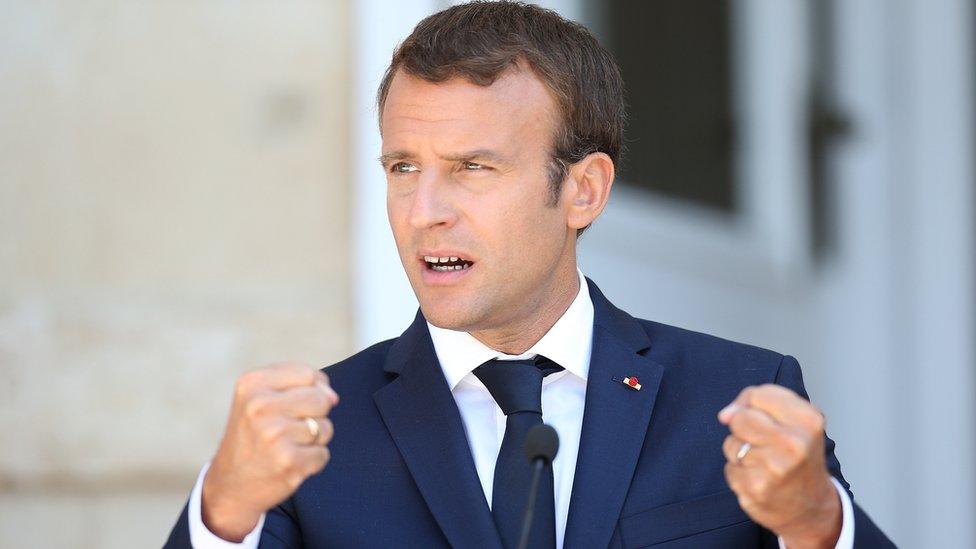Macron's public sector reforms spark nationwide strikes
- Published
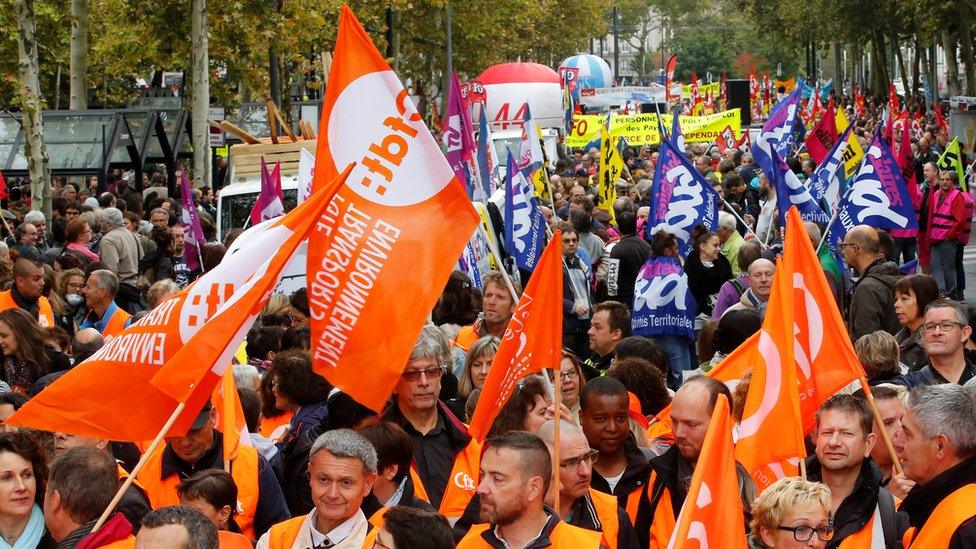
All nine of France's public sector unions support Tuesday's nationwide strike
Millions of public sector workers in France are taking part in a nationwide one-day strike in protest at President Emmanuel Macron's economic reforms.
The action has closed schools and disrupted train services and about a third of flights have been cancelled.
The French government plans to cut 120,000 public sector jobs in France over the next five years.
Last month, thousands of people demonstrated in Paris at Mr Macron's overhaul of France's labour laws.
The nationwide strike on Tuesday, called by all nine of the country's public sector unions, was organised to show solidarity against the job cuts and further plans to freeze pay.
The unions, which represent 5.4 million public workers, said the demonstrations would send a message of their "profound disagreement" with Mr Macron's plans.
Marches have taken place in major cities including Nantes and Lyon, with a procession due to begin in Paris at 14:00 local time (12:00 GMT) from the Place de la République.
Two of France's biggest unions, the CFDT and Force Ouvrière (FO), have given their support to the industrial action.
Laurent Berger, who heads the CFDT, told French news daily Les Echos that the country's public sector was "suffering" from "budgetary constraints".
"The government does not seem to have taken the full measure of the deep malaise among civil servants," he said.
Jean-Claude Mailly, the leader of the FO union, also joined demonstrators as thousands marched in the city of Lyon.
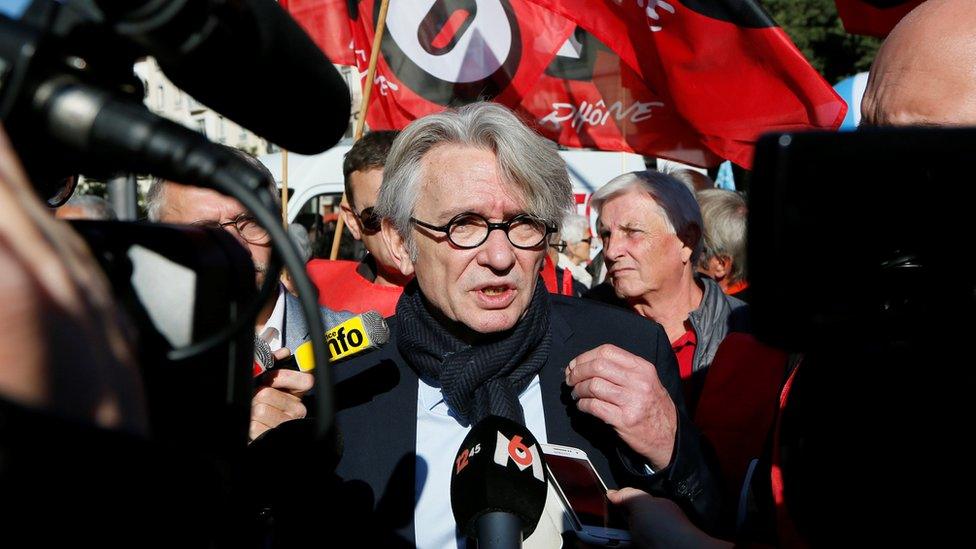
Jean-Claude Mailly, leader of the FO union, attended the demonstration in Lyon
While Mr Mailly did not back last month's protests, his union said that it "fully supports" those taking part in Tuesday's nationwide strikes and "will demonstrate in defence of their rights, their statutes, their purchasing power and their pensions".
Speaking in Lyon on Tuesday, Mr Mailly said that Mr Macron's "strategy of austerity" will end up "calling into question the very existence of public service".
He said he was concerned about the possible transfer of services, such as nurseries and hospitals, to the private sector, adding that further demonstrations were being planned for next month.
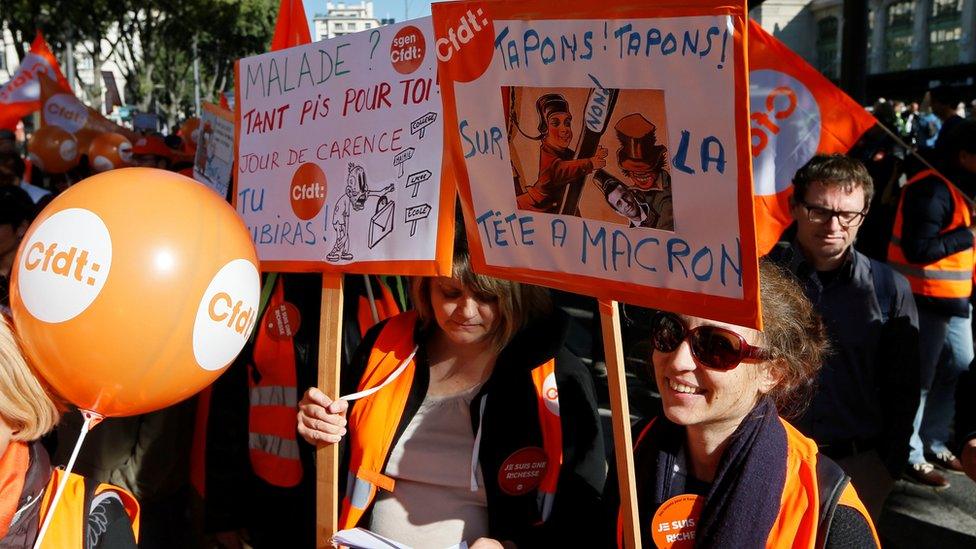
Members of France's CFDT union carry placards that read: "Hit, hit, Macron's head"
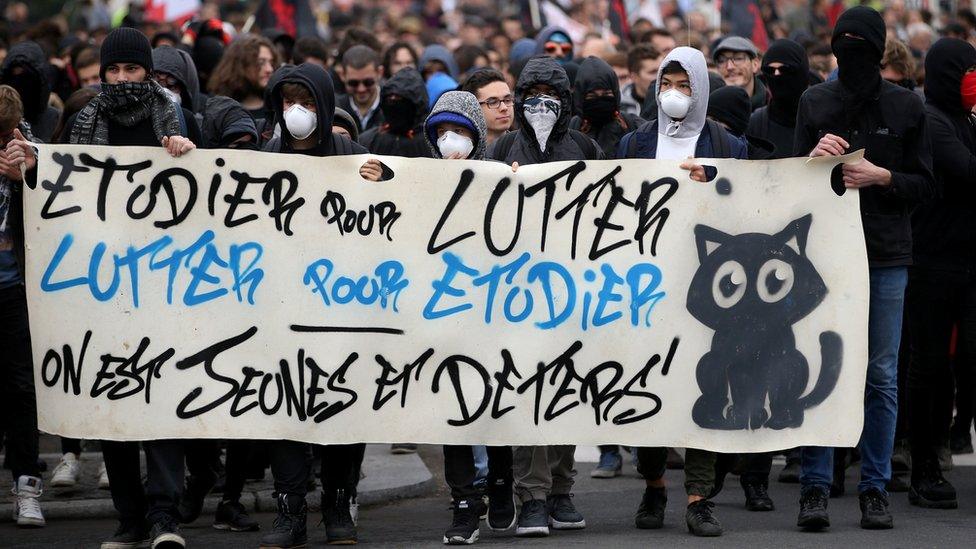
Students join demonstrators in Nantes with a banner that reads: "Study to fight, fight to study"
Last month, tens of thousands of people took to the streets of Paris after Mr Macron signed a new law aimed at making it easier for businesses to hire and fire staff.
The demonstration was organised by Jean-Luc Mélenchon, the far left leader who has emerged as the president's principal political opponent.
Mr Macron, whose government has promised to cut unemployment from its current 9.5% to 7% in five years, has said that he expects months of resistance to some of the new working laws.
Mr Macron has seen his popularity slide dramatically since he came to power on 7 May.
- Published31 August 2017
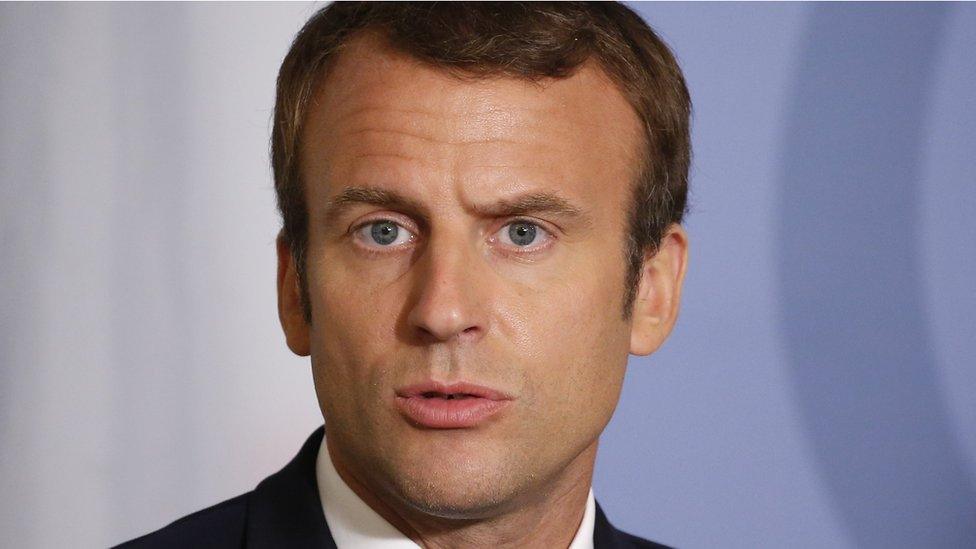
- Published23 September 2017
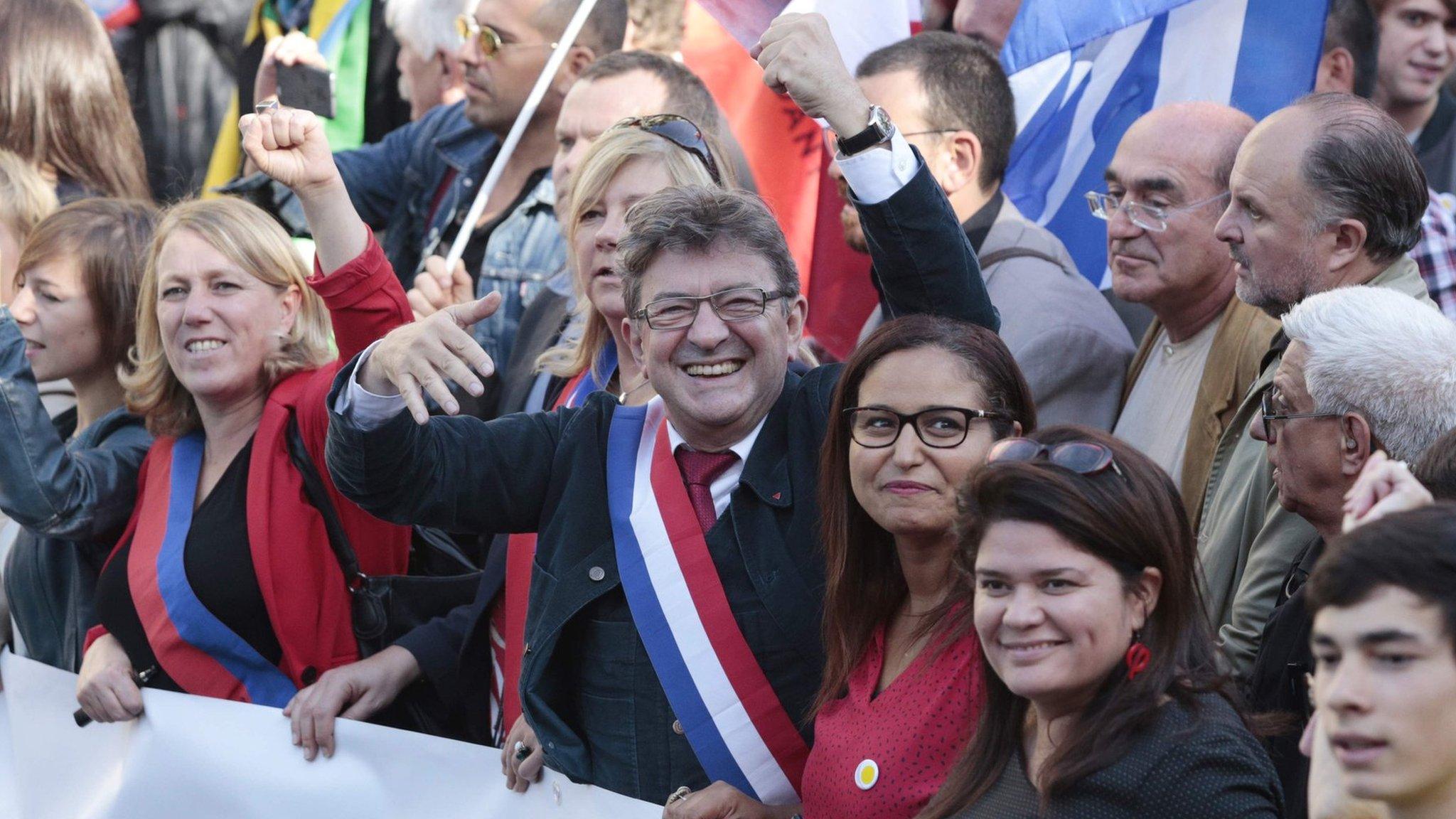
- Published29 August 2017
